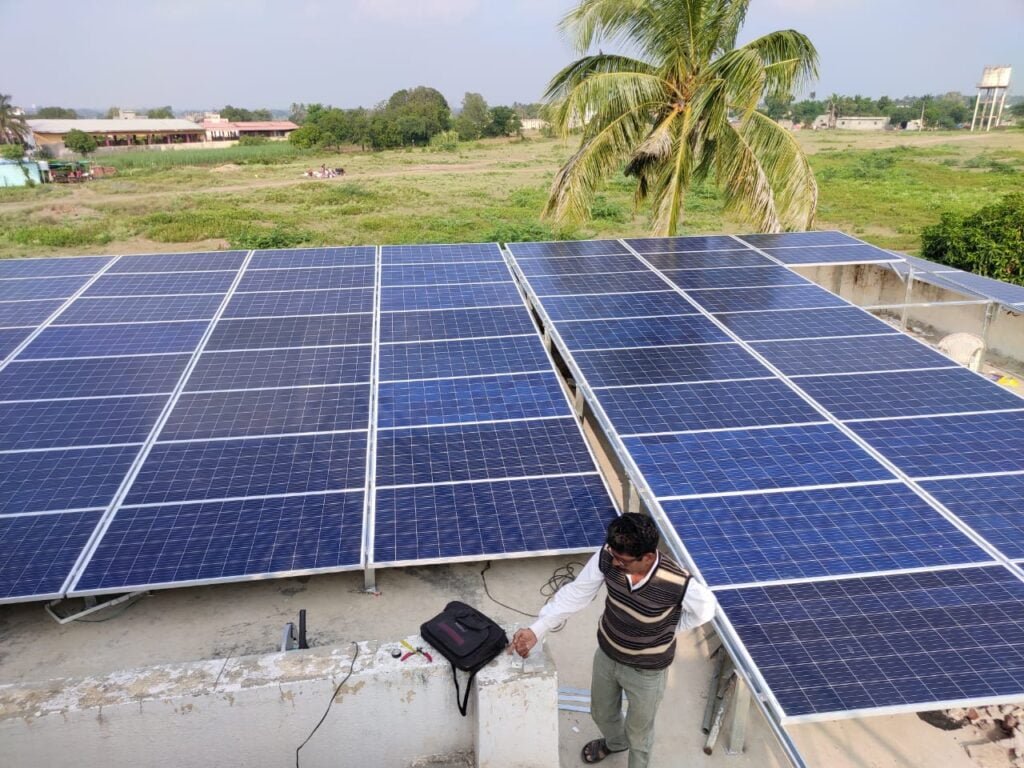Lorem ipsum dolor sit amet, consectetur adipiscing elit. Ut elit tellus, luctus nec ullamcorper mattis, pulvinar dapibus leo.

Solar as an Investment: Brightening Your Financial Future
Investing in solar energy isn’t just a commitment to sustainability; it’s also a smart financial move. With the growing demand for clean energy solutions, solar investments have become increasingly attractive. This article explores the various aspects of solar as an investment and how you can leverage its potential for financial growth.
Importance of Solar Investment
Investing in solar energy is crucial for several reasons. Firstly, it helps reduce reliance on fossil fuels, thereby mitigating the harmful effects of greenhouse gas emissions on the environment. Secondly, solar investments contribute to the development of sustainable energy infrastructure, promoting energy independence and resilience.
Environmental Impact
Investing in solar energy significantly reduces carbon emissions, helping combat climate change and air pollution. By supporting solar projects, investors play a vital role in advancing clean energy solutions and preserving the planet for future generations.
Financial Benefits
Aside from its environmental benefits, solar energy offers lucrative financial returns. Solar investments provide a stable source of income through long-term contracts, such as power purchase agreements (PPAs), and government incentives, including tax credits and rebates
Types of Solar Investments
Solar Stocks
Investing in solar stocks involves purchasing shares of publicly traded companies involved in the solar energy sector. These companies may specialize in solar panel manufacturing, installation, or project development.
Solar Bonds
Solar bonds are debt securities issued by solar energy companies or project developers to raise capital for solar projects. Investors receive periodic interest payments and the return of principal upon maturity.
Solar ETFs
Solar exchange-traded funds (ETFs) are investment funds that hold a diversified portfolio of solar-related assets, including stocks, bonds, and other securities. Investing in solar ETFs provides exposure to the entire solar industry while spreading risk across multiple companies.
Solar as an investment
Research and Education
Before diving into solar investments, it’s crucial to educate yourself about the industry, investment options, and potential risks. Conducting thorough research and seeking advice from financial experts can help you make informed investment decisions.
Financial Planning
Assess your financial goals, risk tolerance, and investment timeframe to develop a personalized investment strategy. Consider factors such as your budget, expected returns, and portfolio diversification when planning your solar investment
Choosing Investment Options
Evaluate different investment opportunities, such as direct investment in solar projects, purchasing solar stocks or bonds, or investing in solar ETFs. Choose investment options that align with your financial goals and risk profile
FAQ(Frequently Asked Questions)
Solar investment returns vary depending on factors such as project size, location, and financing structure. However, solar projects typically offer stable, long-term returns ranging from 5% to 15%
There are various investment options available for investors with different budget sizes, including crowdfunding platforms, solar funds, and community solar programs. These options allow investors to participate in solar projects with minimal capital.
Yes, solar investments can be an excellent addition to retirement portfolios, offering diversification, stable returns, and potential tax benefits. Including solar investments in a retirement portfolio can align with long-term financial goals and ethical investment principles.
Some potential risks associated with solar investments include regulatory changes, technological obsolescence, and market volatility. It’s essential for investors to conduct thorough due diligence and risk assessments before investing in solar energy.
Investors can monitor the performance of their solar investments through regular reporting provided by project developers or investment platforms. Key performance indicators may include energy production, revenue generation, and project profitability
© 2024 Aditya Renewable Energy. All Rights Reserved.
